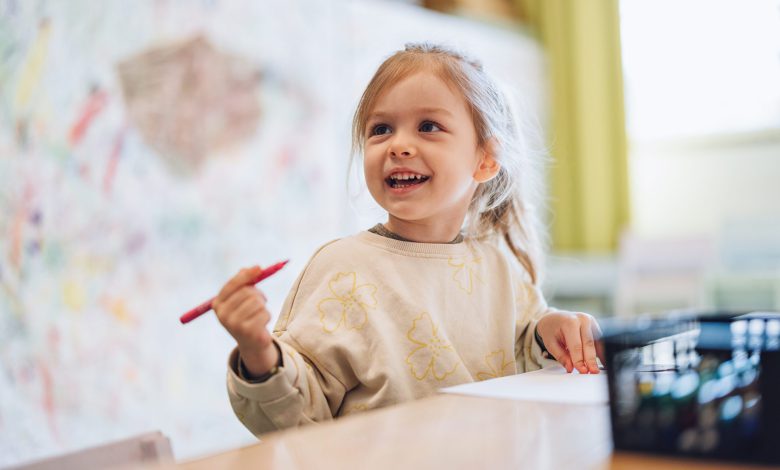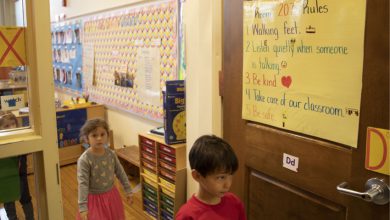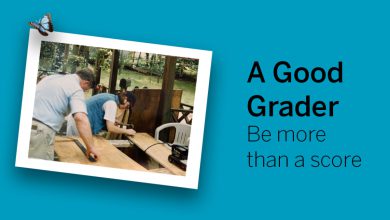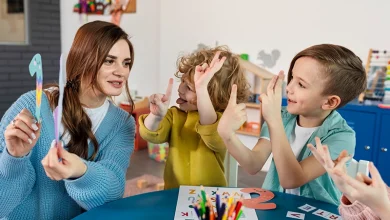Meeting Children at Any Level

My daughter Lucy turned eight recently and is starting third grade this month. As an educator who focuses on development and learning from birth through third grade, I am acutely aware of what a big milestone that is.
Because of my role in education, I probably spend a bit more time analyzing development than the typical parent (I can’t help myself), but I know as a mama the most important things to me are the things every adult wants for their child: that they be supported in becoming their own person; that their interests are nourished; that their strengths are valued; that their needs are met; and that they are loved, cared for, cared about, and cherished as the incredible, individual humans they are.
Anyone who works with young children knows how different they can be from each other. But anyone who’s charged with guiding the development and learning of young children knows how difficult it can be to honor and celebrate those differences if the resources at your disposal aren’t built to be responsive to the unique needs of each child. One size never fits all. How can one teacher be expected to meet the wide variety of needs and nurture the wide variety of interests that exist in a classroom? What can school leaders do to make sure teachers are equipped to take on this essential work?
Resources That Help Every Teacher Help Every Child
The first step in meeting each child’s needs and promoting each child’s interests is understanding the child as a whole person (a “whole child”), who is both like and unlike all other children.
One of the things that I love most about working at Teaching Strategies is how much I believe in what we create here—the resources and guidance we develop for teachers, leaders, and families. We are driven by a commitment to creating the best, most effective ways to support the critically important work of early childhood educators. The backbone of this work is a set of 38 objectives for development and learning that help educators get to know children deeply as the complex, interesting, amazing, and individual humans they are now and that they are becoming.
Within our connected ecosystem of early childhood solutions, we offer print and digital resources through The Creative Curriculum
that nurture each child’s development and learning and promote their interests. Our curriculum is aligned to our GOLD assessment system, which helps teachers understand a child’s current knowledge, skills, and abilities by observing what a child knows and can do in authentic settings and then prompts teachers to individualize each child’s learning based on each child’s portfolio.
But that individualization must extend beyond the classroom as well, which is why we offer pre-populated and dynamic family-facing resources that support children’s development and learning at home (or at the park or in the grocery store). In addition to the robust family resources already within our curriculum, we also offer supplemental resources for engaging families in their children’s learning and specifically targeting children’s social–emotional learning (SEL). These resources include ReadyRosie, which provides families with videos that model learning activities they can do with their children, and Al’s Pals, which supports children’s health, safety, and emotional wellness with dedicated SEL lessons.
Furthermore, our wide-ranging suite of professional development opportunities helps us practice what we preach—we promote the development and learning of each educator through an unparalleled variety of engaging options, from helping the newest teacher get off to a great start with our 8-week Teacher Acceleration Program to helping new and experienced teachers discover new ways of promoting each child’s growth through our embedded micro-learning videos, over 400 hours of online courses, and opportunity to connect with over 80,000 engaged educators in The Hub.
Meeting Children Where They Are
(and So Much More)
Sure, early childhood education is about “meeting children where they are.” That’s a fairly popular phrase these days. But teaching involves so much more than that. School is so much more than that. “Meeting children” is where it starts; we believe that children and the adults who help them develop and learn need and deserve so much more than that. Teaching Strategies is committed to creating resources that help teachers confidently individualize their responsive approach to each child’s strengths, needs, and interests.
I invite you to give us a look. Think about what concerns you currently have in terms of effectively assessing and promoting each child’s development and learning, connecting with and engaging every family, and finding meaningful professional learning. Let us help you discover solutions to those concerns.
Here at Teaching Strategies, we want to do more than just “meet children where they are.” We want to help you help each child develop, learn, and grow into their own person—complex, interesting, amazing, and loved.





